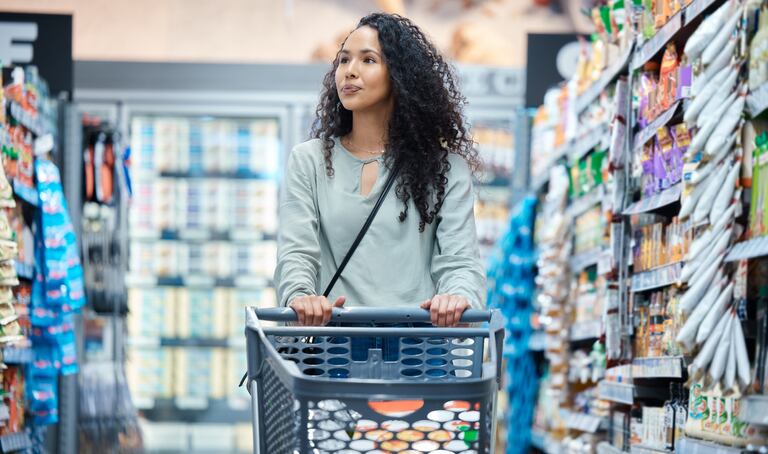There’s room for progress within retailers, the report states, citing 10% of industry executives are “very far along” with innovation, suggesting more room for expansion surrounding branding, merchandising, purchasing, logistics, inventory management and marketing, among others.
“Inflation-driven price increases throughout the store have also spiked significant consumer interest in private brands as shoppers look for ways to stretch their grocery dollar farther, with nearly 77% of customers who are already purchasing private brands say they expect to buy even more in the future,” Doug Baker, VP, industry relations, FMI, said in the report.
As private label continues to attract price-conscious consumers, retailers are actively recognizing the various banners and brands that their shoppers engage with in order to uncover unaddressed requirements and give importance to prioritizing innovative new products, as reported previously in FoodNavigator-USA.
Brand transparency can mean different things for each CPG brand, including private label. From communicating corporate practices and manufacturing processes to material sources, retailers are looking to instill trust with consumers who are demanding more transparency – and product labels, from digital to on-pack, offer opportunities to relay more information.
Product labels, digital or physical, are the gateway to consumer attention
Retailers’ pursuit of product transparency in private label highlights the shift in conscious consumers’ awareness surrounding ingredients, health benefits and ESG. Purpose-driven brands cultivate trust and loyalty, as supported by a recent study that highlights the correlation between shopper loyalty and a brand's ability to demonstrate how its sustainability claims directly enhance consumers' everyday experiences. Ultimately, the label plays a crucial role in communicating these facets while giving retailers a competitive advantage to leverage existing supply chain and distribution networks.
FMI’s report expands on the significance of retailers connecting with consumers beyond the physical packaging. Digital labels like Smart Label use AR, QR codes, NFC or RFID technology expand on information consumers are seeking, including sustainability, recycling, supply chain processes, sourcing and ESG initiatives and incentive programs, among many others.
Linemark’s blog post expounded further on the functional role of digital labels for CPG brands, adding that “one key advantage of smart labels is their ability to authenticate the identity of a product and provide transparency in the supply chain…Smart labels can provide information on where a product was manufactured, what materials were used, and its overall carbon footprint.”
Further, it’s worth noting that consumers are choosing to shop in-store to save money on transportation and shipping, opening up more opportunities for retailers to experiment with labels, merchandising, packaging and promotions.
Loyalty programs still matter
Based on an 84.51° report reported by FoodNavigator-USA on the role of loyalty programs during economic uncertainty, over 45% of shoppers identify as retailer loyal with 59% reporting they’re more likely to purchase a specific brand at a specific retailer if they receive customized content on promotions and coupons.
Here, the digital avenue offers a significant advantage for retailers boosting their private label portfolio. Operating from a lower margin than brands, retailers have another competitive advantage to spend resources on developing incentive programs for their private label products, both in-store and online; as well as the ability to leverage important metrics like foot-traffic and dwell times to determine and anticipate shopper habits.

